Search
Did you mean: Mithra?
Search Results
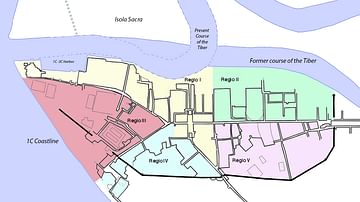
Definition
Ostia
Ostia (or Ostia Antica) lies 15 km from the city of Rome for which it served as the city's principal port and harbour throughout antiquity. The name derives from 'os' or 'ostium' which means 'mouth' and refers to the city's location at the...
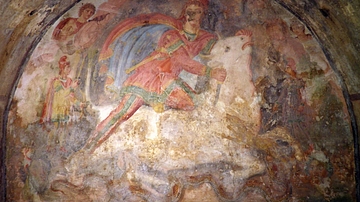
Image
Tauroctony fresco
Tauroctony fresco (depicting Mithras killing a bull) in the mithraeum (temple of Mithras) of Capua (Italy), 2nd century CE.
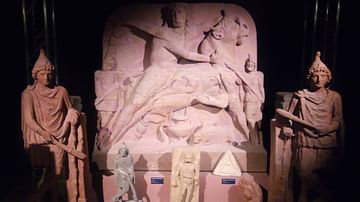
Image
Mithraeum from Nida
Tauroctony from the Mithraeum III of Nida (modern-day Frankfurt-Heddernheim, Germany). The relief of Mithras slaying the bull from Nida's Mithraeum III was found in two pieces in 1887, destroyed during an air raid on Frankfurt in 1944, and...

Article
Twelve Gods of Persian Mythology
Ancient Persian Mythology is the term now referencing ancient Iranian religion prior to the rise of Zoroastrianism between c. 1500-1000 BCE. This was a polytheistic faith with a pantheon led by the supreme god Ahura Mazda (“Lord of Wisdom”...

Article
Constantine’s Conversion to Christianity
Constantine I (Flavius Valerius Constantinus) was Roman emperor from 306-337 CE and is known to history as Constantine the Great for his conversion to Christianity in 312 CE and his subsequent Christianization of the Roman Empire. His conversion...

Article
Ancient Persian Gods, Heroes, and Creatures - The Complete List
The term 'mythology' comes from the Greek mythos (story-of-the-people) and logos (word or speech), meaning the spoken story of a people. Every civilization of the ancient world developed a belief system, which is characterized as 'mythology'...
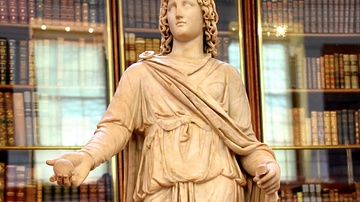
Image
Paris
In the antiquity, the statue represented an attendant of the original god Mithras and would have held a torch, but in the 18th century, the arms were restored with attributes of the Trojan prince Paris. Discovered outside Rome in 1785 CE...
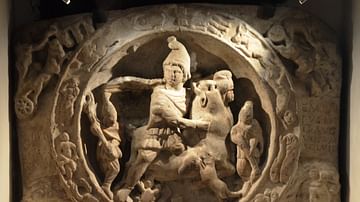
Image
London Tauroctony
The Tauroctony depicting Mithras slaying the bull. The relief was found at the Walbrook site and is now on display at the Museum of London. Dating from ca. 240 - ca. 4th century CE.
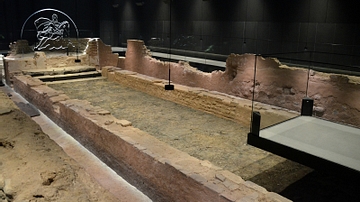
Image
London Mithraeum
The remains of the London Mithraeum, dramatically presented inside the modern Bloomberg Building in the city of London. The Temple, dedicated to the god Mithras, the Lord of Light, was built in the 3rd century CE by an unknown Roman citizen...
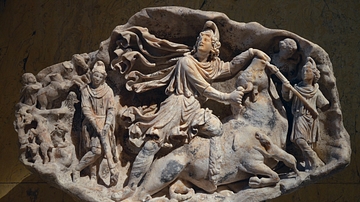
Image
Tauroctony Relief
Tauroctony relief in white marble depicting Mithras slaying the bull in a grotto. It was found South of Monastero near Aquileia (Italy). Now in Vienna Kunsthistorisches Museum, Austria. From the 2nd half of 2nd century CE.